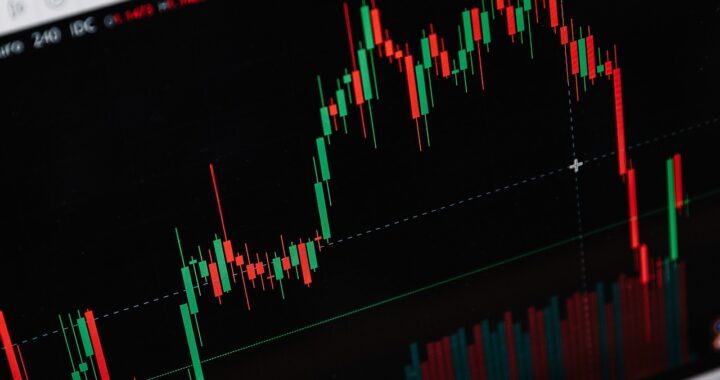Plan for the worst?
There’s no shortage of advice or opinion on currency markets but, the truth is, most of it is unhelpful, unactionable, and usually wrong. Financial executives needn’t be plugged into second-by-second exchange rate movements, rather they should be on top of their company’s ongoing level of risk.
Businesses that don’t have a currency plan in place are potentially leaving themselves exposed to market fluctuations which, if unaddressed, can affect a firm’s future cash flows and profitability, with obvious repercussions including a loss of earnings and/or reduced margins. And, we all know how poor financial performance can have knock-on consequences to future investment and growth prospects, shareholder value creation, or M&A activities!
Why do some fail to plan?
It usually comes down to a combination of these factors:
- Illusion of understanding
- Underestimation of risk
- Misplaced complacency
I could throw in laziness and falling into the trap of “that’s how we’ve always done it” too but, hopefully, we’re all cognisant of those risks by now!
There are several cognitive biases that are also worth a mention:
- Confirmation bias – looking for information that supports your existing view
- Gambler’s fallacy – expecting past events to influence the future
- Dunning-Kruger effect – overestimating your own abilities or knowledge
- Groupthink – conforming to the consensus, rather than critically evaluating alternatives
Do you spot any of these factors and biases in you, or those around you? Be honest!
Before planning, understand.
Not every business should engage in “hedging” – that is, typically, purchasing financial derivatives to offset potential future losses on underlying currency exposures. There are other ways to hedge currency risk, which are to shift the risk to another party, matching currency cash flows (revenues and costs), or netting within a group: Not all of these are straightforward or possible, though.
So, the first thing you should do is to assess the level of risk within the business, and consider these questions:
- Is there an underlying exposure being generated?
- Is it worth hedging? Is the risk material for the business?*
- Is it possible and practical to hedge?
- What is the cost of hedging?
*Don’t forget to be conscious of your biases here – do you know the level of risk or, are you guessing?
To calculate your currency risk, you will want to employ some basic sensitivity analysis of, say, +/- 5%, 10%, and 20% market movement and how it affects the business. This will probably be as straightforward as an impact on the COGS or on overseas sales when translated to the presentation currency.
I would also recommend considering market-based metrics, such as the volatility of the currencies and the recent high-low trading ranges. Further, using Value-at-Risk to give a statistical (not hypothetical) idea of the ongoing risk level is becoming the standard for excellence in currency risk management for businesses.
How to plan?
The business’ currency plan doesn’t need to be War and Peace – a massive document with complex strategies that nobody understands. Simple is better.
Remember: there is an FX market full of deal-hungry, commission-led sales dealers out there desperate to lock you into forwards and options you don’t need. Seek the support of a qualified professional whose interests are aligned with yours!
At a basic level, the plan should cover the following: who, what, when, and why. I won’t elaborate on those points as it should be fairly obvious but, the strength of the plan lies in the detail!
The detail of what the FX strategy looks like should be born of the business’ unique situation, capturing sales cycles, pricing strategies, inventory cycles, the budget process, and qualitative “what if” scenarios based on the competitive landscape, how people would react, and more..!
Why you need to plan:
The big two problems I see every day for financial executives, particularly part-time or fractional FDs and CFOs, are how to share accountability and how to make effective decisions (avoiding bad ones).
Here’s why you need an FX Policy for your business:
- Accountability is shared, reducing key-person risk
- Reduced risk of emotional decision-making
- Less chance of a bad market call impacting the business
- Strong governance is demonstrated to investors, clients, and suppliers
- The policy brings structure, which yields more predictable results
- Performance to objectives can be measured
- A clear framework for how to operate prevents indecision
Summary
Many businesses, and their leaders, fail to plan effectively for their company’s currency management. This is usually due to a lack of understanding or complacency. The effects of currency fluctuations on a business can be disastrous, leading all the way to bankruptcy and everything in-between. But, financial decision-makers can, and should, lead the company to navigate currency volatility, avoiding losses to earnings and margin erosion.
The path to safety needn’t be overly complex, with just a few simple steps to take but, beware those offering assistance, for their motives may be intertwined with their interests, and not aligned to yours.
This guest blog was written by Harry Mills, founder of Oku Markets.
Oku Markets is a UK-based currency management specialist, providing currency risk management, payment solutions and foreign exchange trading services to businesses and individuals. Harry publishes a daily FX market newsletter and a weekly blog covering risk management and financial markets.
About Tectona
Tectona Partnership helps business owners sleep at night by embedding one of our 17 commercially minded finance directors in your management team.
Very often, a part time finance director is the most effective solution.
We make sure you have the necessary management information and strategic insight to make informed decisions and reduce risk; and we will absolutely tell you what you need to know, when you need to know it.

